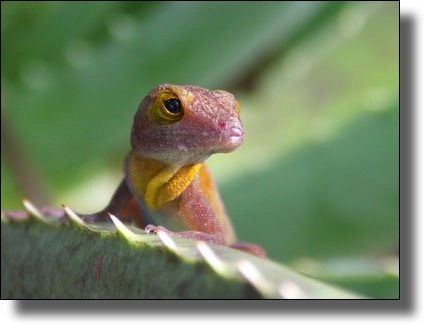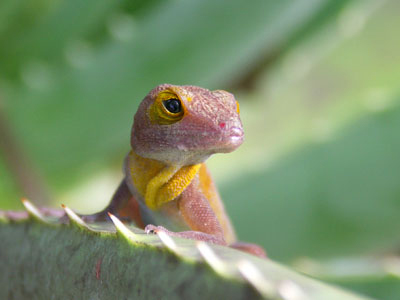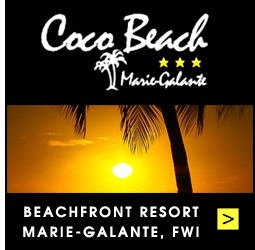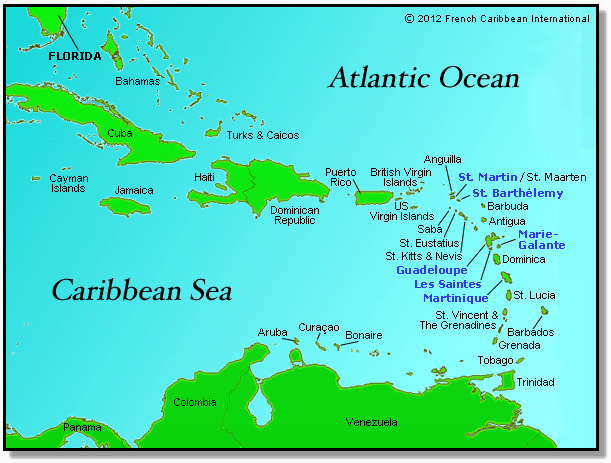Les Saintes / Iles des Saintes - Health and Safety
Probably the greatest danger to travelers to Les Saintes / Iles des Saintes is overexposure to the sun. Remember to work on your tan gradually and use plenty of sunscreen.

Mosquitoes are always found in the tropics and, during rainy periods, they tend to be the most bothersome. In addition to their standard itching bites, mosquitoes may transmit nasty diseases such as dengue, chikungunya, zika virus and malaria. The most reliable defense is a liberal application of personal repellent, particularly at dawn and dusk. Other defenses include locally available plug-in and burning coil devices that help to repel mosquitoes both indoors and out.
Outside of the rarely seen fer-de-lance snake on Martinique, there is not much in the way of really dangerous land critters in the French West Indies. The Manchineel tree (le Manceniller) puts out a highly toxic sap. You should never stand under one in the rain or taste its little green berries. These trees are usually marked with red paint by the locals.
As you travel around Les Saintes, you may spot iguanas on the ground or in the trees. These fascinating creatures are protected by law in these islands. They are fun to watch and photograph but, if you approach them, they will generally scramble quickly to another location. Please do not try to corner or handle them in any way. Iguanas have lots of dangerous little teeth, strong jaws and razor-sharp claws.
In shallow coastal water, watch out for sea urchins, sharp coral and jellyfish. Always wear fins (palmes) when snorkeling and ask the locals about swimming and diving conditions before you go in the water.
Swimming in fresh waters in the tropics may lead to exposure to certain parasitic diseases. Check with locals regarding the safety of ponds and rivers in the Caribbean.
EATING AND DRINKING
Some large reef fish may contain toxins that can cause serious symptoms if ingested. Check with locals before eating fish that you have caught yourself. The tap water is drinkable in most places and excellent local bottled water is available in stores and restaurants.
MEDICAL CARE
There is a medical clinic and two general physicians on Terre-de-Haut. Serious medical issues will require transport to Guadeloupe.
CONTAGIOUS DISEASES
For the latest information on any epidemic or pandemic (such as coronavirus) that could impact your travel, please contact the local tourist office or check with the CDC (linked below). AIDS is a factor throughout the world. Remember to practice safe sex.
HELPFUL LINKS
For tropical storm information: wunderground.com
For US State Dept. travel advisories and information: travel.state.gov
For Caribbean travel health advisories: cdc.gov
Outside of the rarely seen fer-de-lance snake on Martinique, there is not much in the way of really dangerous land critters in the French West Indies. The Manchineel tree (le Manceniller) puts out a highly toxic sap. You should never stand under one in the rain or taste its little green berries. These trees are usually marked with red paint by the locals.
As you travel around Les Saintes, you may spot iguanas on the ground or in the trees. These fascinating creatures are protected by law in these islands. They are fun to watch and photograph but, if you approach them, they will generally scramble quickly to another location. Please do not try to corner or handle them in any way. Iguanas have lots of dangerous little teeth, strong jaws and razor-sharp claws.
In shallow coastal water, watch out for sea urchins, sharp coral and jellyfish. Always wear fins (palmes) when snorkeling and ask the locals about swimming and diving conditions before you go in the water.
Swimming in fresh waters in the tropics may lead to exposure to certain parasitic diseases. Check with locals regarding the safety of ponds and rivers in the Caribbean.
EATING AND DRINKING
Some large reef fish may contain toxins that can cause serious symptoms if ingested. Check with locals before eating fish that you have caught yourself. The tap water is drinkable in most places and excellent local bottled water is available in stores and restaurants.
MEDICAL CARE
There is a medical clinic and two general physicians on Terre-de-Haut. Serious medical issues will require transport to Guadeloupe.
CONTAGIOUS DISEASES
For the latest information on any epidemic or pandemic (such as coronavirus) that could impact your travel, please contact the local tourist office or check with the CDC (linked below). AIDS is a factor throughout the world. Remember to practice safe sex.
HELPFUL LINKS
For tropical storm information: wunderground.com
For US State Dept. travel advisories and information: travel.state.gov
For Caribbean travel health advisories: cdc.gov

Mosquitoes are always found in the tropics and, during rainy periods, they tend to be the most bothersome. In addition to their standard itching bites, mosquitoes may transmit nasty diseases such as dengue, chikungunya, zika virus and malaria. The most reliable defense is a liberal application of personal repellent, particularly at dawn and dusk. Other defenses include locally available plug-in and burning coil devices that help to repel mosquitoes both indoors and out.
Outside of the rarely seen fer-de-lance snake on Martinique, there is not much in the way of really dangerous land critters in the French West Indies. The Manchineel tree (le Manceniller) puts out a highly toxic sap. You should never stand under one in the rain or taste its little green berries. These trees are usually marked with red paint by the locals.
As you travel around Les Saintes, you may spot iguanas on the ground or in the trees. These fascinating creatures are protected by law in these islands. They are fun to watch and photograph but, if you approach them, they will generally scramble quickly to another location. Please do not try to corner or handle them in any way. Iguanas have lots of dangerous little teeth, strong jaws and razor-sharp claws.
In shallow coastal water, watch out for sea urchins, sharp coral and jellyfish. Always wear fins (palmes) when snorkeling and ask the locals about swimming and diving conditions before you go in the water.
Swimming in fresh waters in the tropics may lead to exposure to certain parasitic diseases. Check with locals regarding the safety of ponds and rivers in the Caribbean.
EATING AND DRINKING
Some large reef fish may contain toxins that can cause serious symptoms if ingested. Check with locals before eating fish that you have caught yourself. The tap water is drinkable in most places and excellent local bottled water is available in stores and restaurants.
MEDICAL CARE
There is a medical clinic and two general physicians on Terre-de-Haut. Serious medical issues will require transport to Guadeloupe.
CONTAGIOUS DISEASES
For the latest information on any epidemic or pandemic (such as coronavirus) that could impact your travel, please contact the local tourist office or check with the CDC (linked below). AIDS is a factor throughout the world. Remember to practice safe sex.
HELPFUL LINKS
For tropical storm information: wunderground.com
For US State Dept. travel advisories and information: travel.state.gov
For Caribbean travel health advisories: cdc.gov
________________________________________
French Caribbean International has been the premier guide to the French West Indies since 1994. We provide a wealth of helpful travel information for visitors to the Caribbean islands of St. Barthélemy (St. Barts, St. Barth, St. Barths), St. Martin / St. Maarten, Martinique, Guadeloupe, Les Saintes and Marie-Galante.







